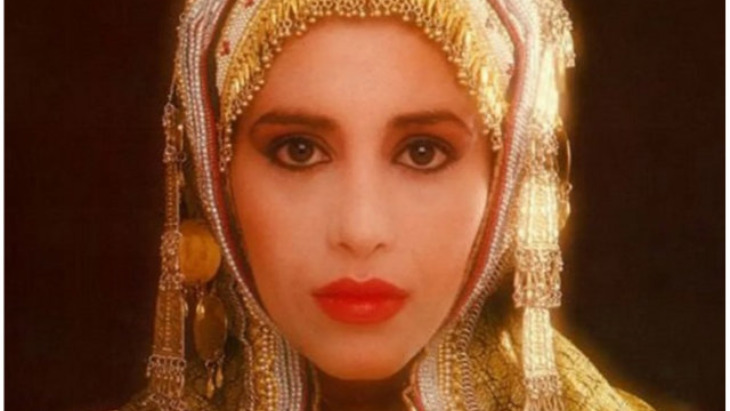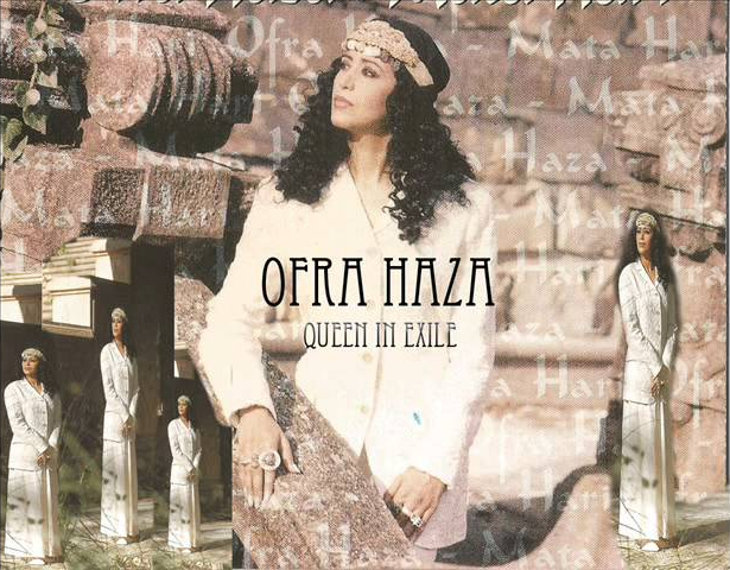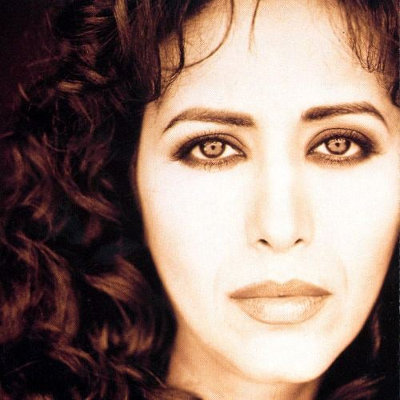 Vampire Weekend's Surprising Jewish Stories
Vampire Weekend's Surprising Jewish Stories


5 min read
Honored by Rolling Stone years after her death, Ofra Haza blended pop and traditional Yemini music.
What does the late Israeli singer Ofra Haza have in common with Beyoncé and Bob Dylan, Alicia Keys and Aretha Franklin, Elvis Presley and Etta James? Rolling Stone magazine this month named them to the list of 200 greatest singers of all times.
“These are the vocalists that have shaped history and defined our lives—from smooth operators to raw shouters, from gospel to punk, from Sinatra to Selena to SZA,” according to the magazine, whose list by staff and key contributors covers 100 years of pop music as an “ongoing global conversation.”
Ofra Haza certainly played a key part. The exotic brunette earned an international reputation for her blend of pop and traditional Yemeni music. A Middle East trailblazer with wide crossover appeal, she sang in Hebrew, Arabic and English. Haza’s songs were said to bridge a cultural gap.
Haza created something that felt at once ancient and ahead of its time.
Rolling Stone gushed: “Inspired by her Yemeni-Jewish ancestry, Haza combined traditional vocal conventions with modern technique to create something that felt a.t once ancient and ahead of its time.”
Haza grew up the youngest of nine children in a poor, traditional Yemeni family living in the Hatikva quarter of Tel Aviv. Born in 1957 to parents who had immigrated from Yemen, she came by her talent naturally. Her mother had been a singer in Yemen, and often would perform at family celebrations.

At age 12, Haza joined a Tel Aviv neighborhood program called the Hatikvah Quarter Theater Workshop, led by Bezalel Aloni. Recognizing the young songbird’s talent, Aloni eventually became her manager and producer.
Through the neighborhood program she sang “Ga’agu’im” (Yearning), which soared to first place on the radio hit parades. At the 1975 Mizrachi Music Festival, an elegant head chain crowning her long dark hair, she took third place with “Shabbat ha-Malkah” (The Sabbath Queen).
“How beautiful are you, Sabbath Queen, Descending in splendor from the highest heaven, and the Lord will spread a blessing over the chosen people,” went the refrain.
Sometimes called the Madonna of the Middle East, Haza couldn’t look or sound more different with her Mediterranean beauty and soulful vocals.
Haza is famously quoted as saying: “I don't know what I would have done without believing in God. His support gives me power and energy to continue to be optimistic, to smile, not to be depressed. Sometimes, if things are not going so well, I don't cry. I say maybe it's meant to be.”
Things went incredibly well in the 1980s. Haza claimed bragging rights as best female singer in Israel in 1980, 1981 and 1986. She was the face of Israel at the 1983 Eurovision Song Contest, where she placed second with her song “Chai” (Life). Her 1984 hit “Im Nin’alu” (If the Gates Are Locked), a Yemeni prayer set to a catchy disco beat, was “instantly transportive, sweeping up the listener in her expressive fluttery mezzo-soprano,” according to Rolling Stone.

In her brief career, Haza recorded 27 albums and performed across Europe, America and Israel, often at the latter’s Army bases in the north and south.
A Grammy nominee for best album in 1992, Haza traveled to Oslo, Norway, in 1994 at the invitation of Israeli Prime Minister Yitzhak Rabin, when he, Shimon Peres and Yasser Arafat shared the Nobel Peace Prize for their efforts to create peace in the Middle East.
Only a year later, Haza sang at the memorial service for Rabin following his assassination.
She expressed herself not only as a singer, but also as an actress and composer. Steven Spielberg invited her to perform in his 1998 animated feature “The Prince of Egypt.” She recorded the theme song “Deliver Us,” and crooned her famous “River Lullaby” while singing to a baby doll to evoke as much emotion as possible. She even voiced the role of Yocheved, mother of Moses, in 17 of the 20 languages in which the movie was dubbed.
Only five of the voice actors and actresses—including Haza— did both the singing and speaking parts of their characters.
Meanwhile, back in Israel that year, Haza performed a stunning rendition of Naomi Shemer’s “Jerusalem of Gold” at the official ceremony for the nation’s 50th anniversary.
As much as Haza sparkled in her career, personal fulfillment seemed to have eluded her. She married in 1997 and died suddenly of massive organ failure in 2000 at the age of 42.
Israeli Prime Minister Ehud Barak gave her a glowing eulogy. “I had the honor of knowing Ofra and was impressed by her shining personality and her great talent. Her contribution to Israeli culture was great, and the honor she brought this country will never be forgotten.”
Featured image: Ofra Haza, dressed in a traditional Yemenite outfit, on the cover of her album "Yemenite Songs." Credit: Hed Artzi
